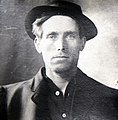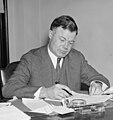
Introduction

- In trade unions, workers campaign for higher wages, better working conditions and fair treatment from their employers, and through the implementation of labour laws, from their governments. They do this through collective bargaining, sectoral bargaining, and when needed, strike action. In some countries, co-determination gives representatives of workers seats on the board of directors of their employers.
- Political parties representing the interests of workers campaign for labour rights, social security and the welfare state. They are usually called a labour party (in English-speaking countries), a social democratic party (in Germanic and Slavic countries), a socialist party (in Romance countries), or sometimes a workers' party.
- Though historically less prominent, the cooperative movement campaigns to replace capitalist ownership of the economy with worker cooperatives, consumer cooperatives, and other types of cooperative ownership. This is related to the concept of economic democracy.
The labour movement developed as a response to capitalism and the Industrial Revolution of the late 18th and early 19th centuries, at about the same time as socialism. The early goals of the movement were the right to unionise, the right to vote, democracy, safe working conditions and the 40-hour week. As these were achieved in many of the advanced economies of western Europe and north America in the early decades of the 20th century, the labour movement expanded to issues of welfare and social insurance, wealth distribution and income distribution, public services like health care and education, social housing and common ownership. (Full article...)
Selected article
Cesario Estrada Chavez (/ˈtʃɑːvɛz/; Spanish: [ˈtʃaβes]; March 31, 1927 – April 23, 1993) was an American labor leader and civil rights activist. Along with Dolores Huerta and lesser known Gilbert Padilla, he co-founded the National Farm Workers Association (NFWA), which later merged with the Agricultural Workers Organizing Committee (AWOC) to become the United Farm Workers (UFW) labor union. Ideologically, his worldview combined left-wing politics with Catholic social teachings.
Born in Yuma, Arizona, to a Mexican-American family, Chavez began his working life as a manual laborer before spending two years in the U.S. Navy. Relocating to California, where he married, he got involved in the Community Service Organization (CSO), through which he helped laborers register to vote. In 1959, he became the CSO's national director, a position based in Los Angeles. In 1962, he left the CSO to co-found the NFWA, based in Delano, California, through which he launched an insurance scheme, a credit union, and the El Malcriado newspaper for farmworkers. Later that decade, he began organizing strikes among farmworkers, most notably the successful Delano grape strike of 1965–1970. Amid the grape strike, his NFWA merged with Larry Itliong's AWOC to form the UFW in 1967. Influenced by the Indian independence leader Mahatma Gandhi, Chavez emphasized direct nonviolent tactics, including pickets and boycotts, to pressure farm owners into granting strikers' demands. He imbued his campaigns with Roman Catholic symbolism, including public processions, Masses, and fasts. He received much support from labor and leftist groups but was monitored by the Federal Bureau of Investigation (FBI).
In the early 1970s, Chavez sought to expand the UFW's influence outside California by opening branches in other U.S. states. Viewing illegal immigrants as a major source of strike-breakers, he also pushed a campaign against illegal immigration into the U.S., which generated violence along the U.S.-Mexico border and caused schisms with many of the UFW's allies. Interested in co-operatives as a form of organization, he established a remote commune at Keene. His increased isolation and emphasis on unrelenting campaigning alienated many California farmworkers who had previously supported him, and by 1973 the UFW had lost most of the contracts and membership it won during the late 1960s. His alliance with California Governor Jerry Brown helped ensure the passing of the California Agricultural Labor Relations Act of 1975, although the UFW's campaign to get its measures enshrined in California's constitution failed. Influenced by the Synanon religious organization, Chavez re-emphasized communal living and purged perceived opponents. Membership of the UFW dwindled in the 1980s, with Chavez refocusing on anti-pesticide campaigns and moving into real-estate development, generating controversy for his use of non-unionized laborers. (Full article...)
February in Labor History
Significant dates in labour history.
- February 01 – The Paterson silk strike of 1913 began in the U.S.; the San Diego free speech fight began in the U.S. in 1912
- February 02 – Shannon J. Wall died
- February 03 – George Becker died; José Vitoriano died
- February 04 – Bill Haywood was born; John Mitchell was born; Benyoucef Benkhedda died
- February 05 – Neil Aggett died; Ludvik Buland died
- February 06 – The Seattle General Strike of 1919 began in the U.S.; Elba Esther Gordillo was born; William Hutcheson was born
- February 07 – The Cripple Creek miners' strike of 1894 began in the U.S.; the 2006 labour protests in France began; Paul Mattick died
- February 08 – Ong Teng Cheong died; Jakob Kaiser was born
- February 09 – George Lippard died; the Supreme Court of Canada issued its reasoning in Ontario Human Rights Commission v. Etobicoke
- February 10 – 11 strikers were killed during the Reesor Siding Strike of 1963 in Canada; Peter Smith died; the Building and Construction Trades Department, AFL-CIO was founded; the film Blue Collar was released
- February 11 – The Oxnard strike of 1903 began in the U.S.; the UAW won a first contract at GM, ending the Flint sit-down strike; Nellie Quander was born; Mark Hewitson died; Clyde Cameron was born; the Memphis sanitation strike began
- February 12 – John L. Lewis was born
- February 13 – The Sons of Vulcan win the first contract in the U.S. iron and steel industry and the first union contract of any kind in American history; Margaretta Scott was born; Dennis McDermott died; John Healey was born
- February 14 – The Asbestos Strike began in 1949 in Australia; the Winter of Discontent ended in the U.K. in 1979; Jimmy Hoffa was born; Michael Sacco was born; the Confederation of State and Municipal Employees of Iceland was founded; Mary Lee was born
- February 15 – The 1951 New Zealand waterfront dispute began; Baldemar Velasquez was born; Alice Henry died
- February 16 – The Griviţa Strike of 1933 began in Romania in 1933; William Quesse died; the National Hockey League cancelled its season in the middle of the 2004-05 NHL lockout; James Orange died;
- February 17 – Harry Van Arsdale, Jr. died
- February 18 – Peter J. McGuire died; George Campbell was born
- February 19 – The U.S. Supreme Court decided Garcia v. San Antonio Metropolitan Transit Authority and NLRB v. J. Weingarten, Inc.; I. C. Frimu died
- February 20 – Chittabrata Majumdar died
- February 21 – Patrick J. Campbell died; Phil Hare was born; Felix Aylmer was born
- February 22 – Albert Shanker died; David Dubinsky was born; the Democratic Organization of African Workers' Trade Union was founded; Poncke Princen died
- February 23 – Douglas Fraser died; Graduate Employees Together – University of Pennsylvania was formed; John Holman died; Kate Barnard died; Benyoucef Benkhedda was born; the Marine Engineers' Beneficial Association was founded
- February 24 – The General Union of Algerian Workers was founded; the U.S. Supreme Court decided Muller v. Oregon; John P. Frey was born; Marshall W. Mason was born
- February 25 – Edgar Nixon died; Las Aguas Bajan Turbias, an Argentine film about workers forming a trade union, debuted in the U.S.
- February 26 – John Holman was born; the Southern California supermarket strike of 2003–04 ended in the U.S.; Frederick Hayday died
- February 27 – The Labour Party was founded in the U.K. in 1909; Mark Hewitson died; the first Spanish Trade Union Organisation congress was held; the European Court of Human Rights decided ASLEF v. United Kingdom; Tom Williamson, Baron Williamson died
- February 28 – The University of Miami 2006 custodial workers' strike began in the U.S.; John White was born; Hal C. Banks was born; Lim Chin Siong was born; John La Rose died; Tommy Lewis died; Ted Theodore died; Arthur Hayday died
- February 29 – A. L. Lloyd was born
More Did you know (auto-generated)
- ... that during World War I the organ of evacuated Polish railway workers in Moscow denounced the trade unions of the Warsaw–Vienna railway as "separatists"?
- ... that Ana Sigüenza was the first woman to be the general secretary of a national trade union center in Spain?
- ... that the communist trade unionist Ditto Pölzl was a member of all three provisional state governments of Styria in 1945?
- ... that during the 1913 El Paso smelters' strike the Industrial Workers of the World and the Western Federation of Miners competed to organize the strikers with their respective labor unions?
- ... that the Russian airstrike on Kyiv TV Tower (video featured) killed Yevhenii Sakun, one of at least 14 civilian journalists killed in the line of duty during the Russo-Ukrainian War?
- ... that M. Farooqui, who had been expelled from his studies for having organized a strike in 1940, received his Delhi University degree in a special convocation in 1989?
Related Portals
Selected image
Selected Quote
The miners are out of work... Their problem is much more than a mining problem—it concerns the standards of living not only for themselves but in other parts of the world."
|
— Eleanor Roosevelt. |
Did you know
- ...that the Dutch National Labor Secretariat once lost many members because each union received one vote but had to pay dues for each member, severely disadvantaging larger unions?
- ...that partly because of issues highlighed by the London matchgirls strike of 1888, the Salvation Army opened up its own match factory in Bow, London in 1891, which used harmless red phosphorus and paid better wages?
- ... that William E. Simkin, longest-serving head of the U.S. Federal Mediation and Conciliation Service, first got involved in arbitration when a professor asked him to assist with a hosiery industry dispute?
Topics
Get involved
Also see our sister WikiProject, Housing and Tenant Rights!
Associated Wikimedia
The following Wikimedia Foundation sister projects provide more on this subject:
-
 Commons
Commons
Free media repository -
 Wikibooks
Wikibooks
Free textbooks and manuals -
 Wikidata
Wikidata
Free knowledge base -
 Wikinews
Wikinews
Free-content news -
 Wikiquote
Wikiquote
Collection of quotations -
 Wikisource
Wikisource
Free-content library -
 Wikiversity
Wikiversity
Free learning tools -
 Wiktionary
Wiktionary
Dictionary and thesaurus
-

-

-

-

-
Random portal












































































You must be logged in to post a comment.